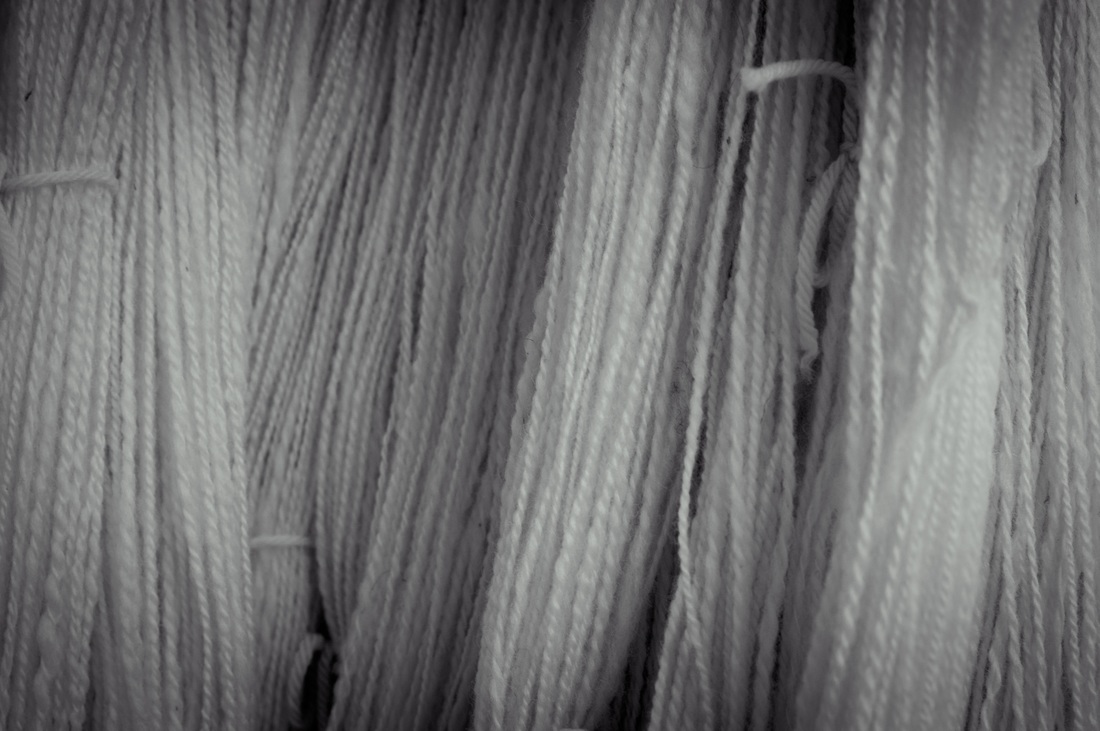|
This week Slow Fashion October is all about small: the handmade, living with less, quality over quantity, capsule wardrobes, indie fashion, small-batch makers, and sustainability. Some of these things, like sustainability, are at the top of mind for me. Others, like the idea of a capsule wardrobe, are a struggle. But that’s what this is about – it’s a challenge to think differently about clothing.
I’ve thought (andwritten) a lot about living with less – about why I want a smaller yarn stash, about how it’s sometimes difficult to downsize. Ultimately, I think it’s really about sustainability and wasting less. It’s tempting to think of sustainability and wasting less as the same thing. Certainly, they are closely related but they have some subtle (and important) differences. The word “sustainable” gets thrown around a lot these days as a marketing tool. Whether or not a product is totally sustainable, if even a part of the design, manufacturing, or shipping process is sustainable, the whole product gets the label. It’s definitely great to support small changes towards true sustainability, but it’s also easy to let marketers delude us into a false sense of what it is we are really consuming. Wasting less seems to imply minimalist living, but again, this doesn’t tell the whole story. It can also be about choosing to purchase things that won’t be wasted or thrown away, about buying things with less packaging, about finding useful applications for the leftovers that might otherwise get thrown away. I’ve managed to achieve a place in my life where I can make meaningful choices about both sustainability and wasting less. For me, sustainability is all about buying materials that were consciously produced – local or organic where possible, or at the very least by a company that is environmentally minded (and treats its employees well). Wasting less is all about finding new ways to use things – unraveling a failed project instead of throwing it away, using up scraps, and finding new life for worn out rags.
There’s a great conversation over onBristol Ivy’s Instagram page (look for the post where she’s resting her hand on her chin) about sustainability and the economic disparities of slow fashion. Not everyone can afford small-batch, hand-dyed, ecologically sustainable materials. For much of my crafting career, I couldn’t afford those things. Only recently did I find out what a wonderful fiber community I have right in my backyard – where I can purchase good local wool to spin at a very good price.
I could spend hundreds of dollars on sustainable yarn to make a sweater, or I could do it the slow way and buy about $30-40 worth of roving, spin the yarn, and make the sweater. It’s not as easy. It’s not as fast. But it gives me more time to enjoy my hobbies of spinning and knitting. Not everything in my life is sustainable, and I’m not always good at wasting less. But they’re both at the top of my mind, and something I’m constantly working toward. In many ways, wasting less is a great way to start towards sustainability, and for a fraction of the price. My stashbusting sweater was all about wasting less, and even though I ended up with as much yarn as I started with, it was a way to explore a new way to use leftovers. And my leftover yarn from the stashbusting sweater became a pair of striped knitted shorts. And when those didn’t fit, they got felted to make a bag. The scraps leftover from the bag will get put aside to make stuffing for a plushie or pincushion. The part of sustainability and wasting less that I love is the challenge. Doing something challenging instead of taking the easy way out is so satisfying. The challenge is where we grow. And that’s what keeps me at it.
Loved this story? Be sure to sign up below for Fiber Sprite Updates only available through email!
Comments are closed.
|
Archives
January 2024
Categories
All
This website uses marketing and tracking technologies. Opting out of this will opt you out of all cookies, except for those needed to run the website. Note that some products may not work as well without tracking cookies. Opt Out of Cookies |

 RSS Feed
RSS Feed